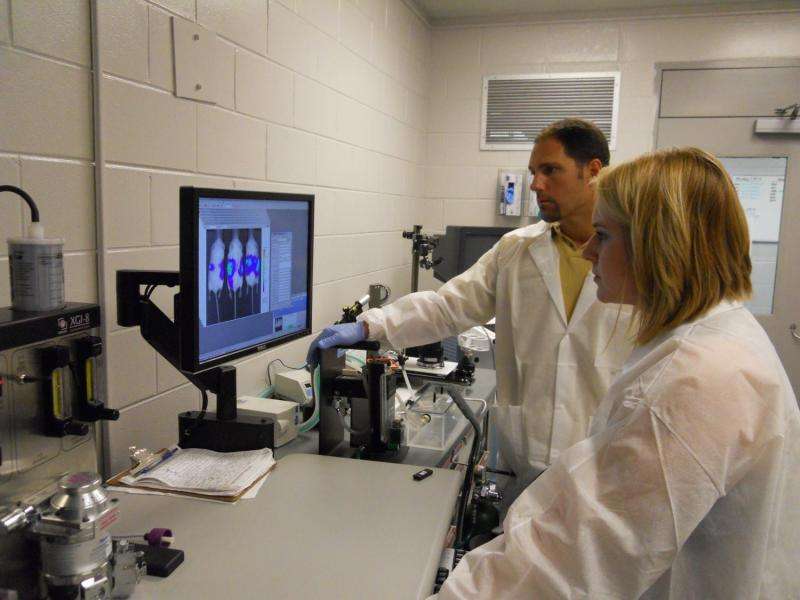Researchers develop novel ketone supplements to enhance non-toxic cancer therapy

A team of researchers from the Hyperbaric Biomedical Research Laboratory at the University of South Florida (USF) doubled survival time in an aggressive metastatic cancer model using a novel combination of non-toxic dietary and hyperbaric oxygen therapies.
The study, 'Non-toxic metabolic management of metastatic cancer in VM mice: novel combination of ketogenic diet, ketone supplementation, and hyperbaric oxygen therapy,' was published online today in PLOS ONE.
Led by principal investigator Dominic D'Agostino, Ph.D., assistant professor in the Department of Molecular Pharmacology and Physiology at the USF Health Morsani College of Medicine, the published research shows the beneficial effects of using ketone supplements in conjunction with a non-toxic therapeutic regimen developed previously by the team. Ketones are produced when the body begins burning fat instead of carbohydrates for energy.
The research group previously published a study in PLOS ONE demonstrating the anti-cancer effects of therapeutic ketosis induced by the high-fat, low-carbohydrate ketogenic diet (KD) combined with hyperbaric oxygen therapy (HBOT), which involves breathing high-pressure oxygen. Inducing therapeutic ketosis solely with the ketogenic diet can be difficult, however, so the USF researchers created novel metabolic agents that induce ketosis without dietary restriction. These ketone supplements slowed cancer growth on their own, and further enhanced the combined therapeutic effects of KD and HBOT.
In the recent USF study, mice with advanced metastatic cancer were fed either a standard high-carbohydrate diet or a carbohydrate-restricted ketogenic diet with ketone supplements and HBOT. Therapeutic ketosis causes the body to shift from using glucose to fatty acids and ketones bodies for energy.
Normal healthy cells readily adapt to using ketone bodies for fuel, but most cancer cells lack this metabolic flexibility. Solid tumors also have areas of low oxygen, which promote tumor growth and metastatic spread. HBOT involves breathing 100 percent oxygen at elevated barometric pressure, saturating the tumors with oxygen. When administered properly, both ketosis and HBOT are non-toxic and may even protect healthy tissues while simultaneously damaging cancer cells.
Animals receiving the combination of KD, ketone supplements, and HBOT lived 103 percent longer than mice fed a standard high-carbohydrate diet. The researchers suggest that their study demonstrates the potential of these non-toxic therapies to contribute to current cancer treatment regimens and significantly improve the outcome of patients with advanced metastatic cancer.
Researchers at USF and elsewhere are investigating the potential benefits of the physiological state of therapeutic ketosis for several major diseases. The USF team believes these novel ketone supplements may be effective in other disorders besides cancer and is conducting ongoing studies to test their potential use in wound healing, epilepsy, amyotrophic lateral sclerosis (ALS), Alzheimer's disease, glucose transporter type 1 (GLUT1) deficiency syndrome, and exercise performance.
More information: The article can be found at http://dx.plos.org/10.1371/journal.pone.0127407

















